These days, artificial intelligence (AI) is changing how students, researchers, and professionals do research. It helps make tasks like reading papers, analyzing data, and writing much easier and faster.
But with so many AI tools out there, it can be confusing to know which one to choose.
Using the right AI tool can save you a lot of time, improve the quality of your work, and make research more accurate.
In this article, you’ll learn about the best AI tools for research in 2025—what they do, how they work, and how they can help you do better in school, science, or work-related projects.
Top AI Research Tools for 2025
1. Elicit – The AI Research Assistant
Elicit helps researchers quickly analyze and summarize academic papers using AI.
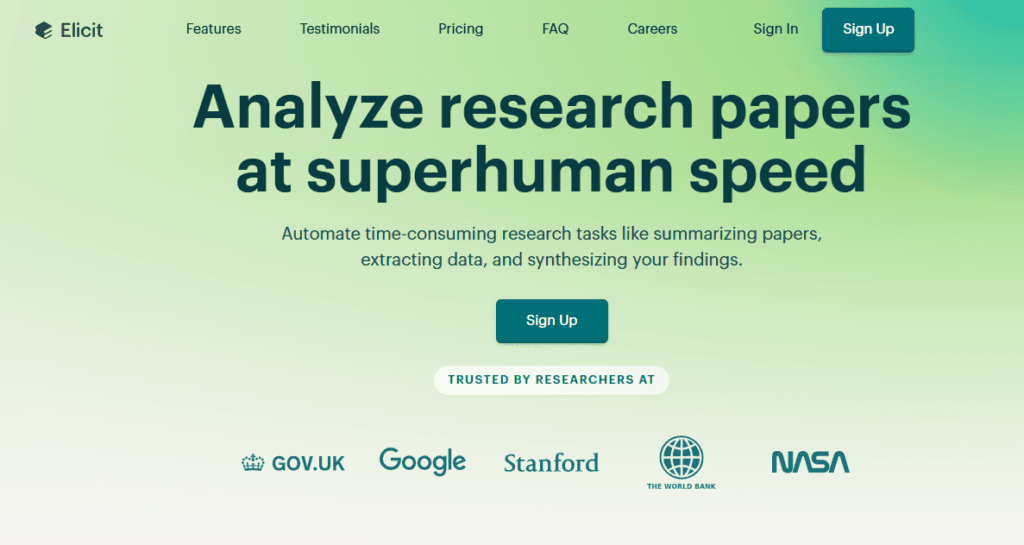
Key Features:
- Conducts automated systematic reviews
- Searches across 125+ million academic papers using natural language
- Extracts and summarizes data
Pros:
- Saves time during literature reviews
- Easy-to-use interface
Cons:
- Free version has limited capabilities
Pricing:
Free basic plan; Premium plans start at $10/month.
User Experience:
Users report it significantly reduces the time spent on reviewing literature.
2. Consensus – AI-Powered Academic Search
Consensus is an AI-powered search engine that finds research-backed answers to scientific questions.
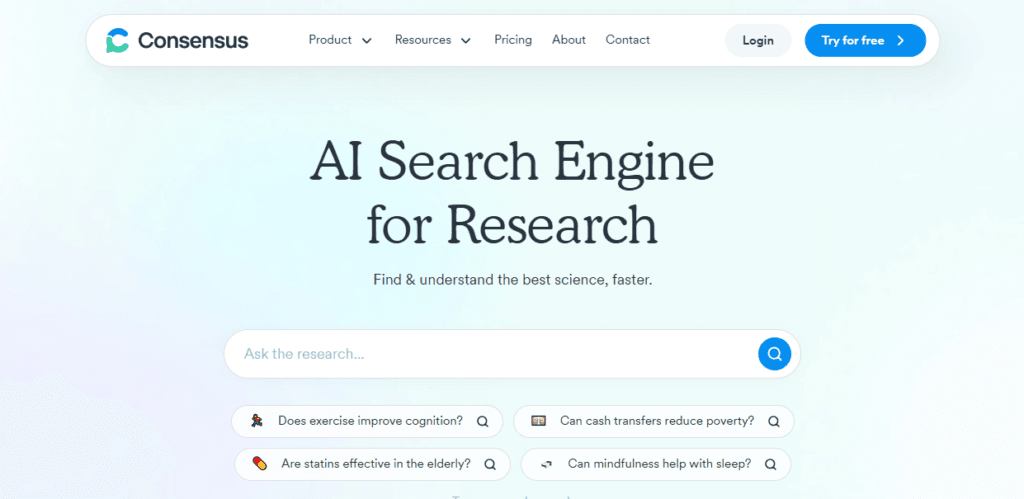
Key Features:
- Searches over 200 million academic papers
- Synthesizes key insights
- Recommends related topics
Pros:
- Fast discovery of relevant studies
- Highlights key findings from reliable sources
Cons:
- May not always include the newest research
Pricing:
Free access; Premium features available.
User Experience:
Appreciated for helping uncover hard-to-find insights and connections between studies.
3. Scite – Smart Citations
Scite combines AI with scholarly search to show how papers cite each other—positive, negative, or neutral.
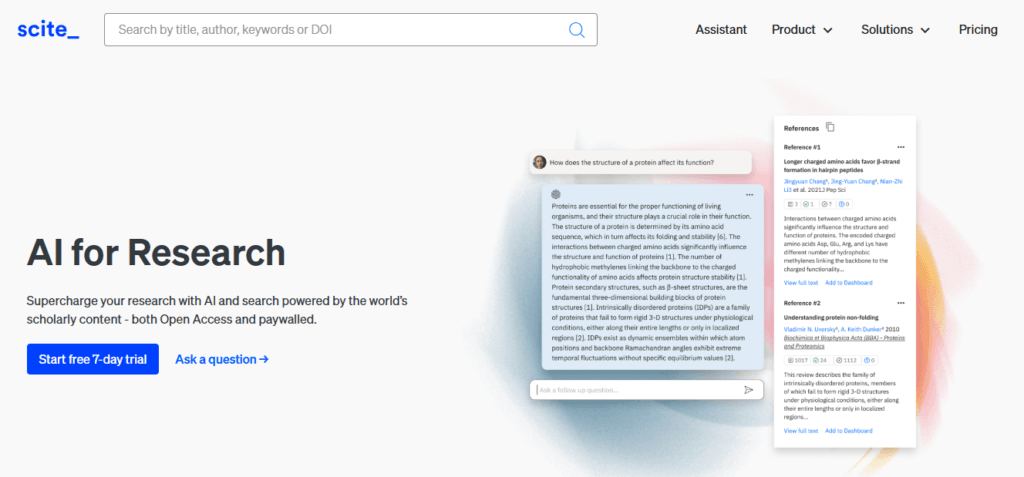
Key Features:
- Smart citations with in-context quotes
- AI research assistant for query support
- Journal dashboards and analytics
Pros:
- Clarifies how a study is cited
- Syncs with tools like Zotero and EndNote
Cons:
- Some features locked behind a subscription
Pricing:
Free trial; Paid plans start at $10/month.
User Experience:
Popular among researchers who want to assess citation quality, not just quantity.
4. ResearchRabbit – Visualize Research Networks
ResearchRabbit helps users explore research trends through citation graphs and discovery trees.
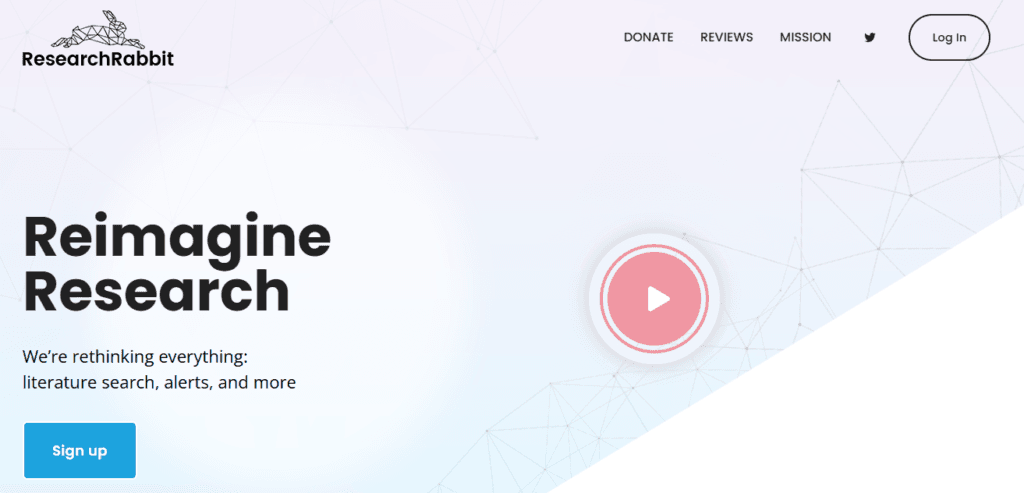
Pros:
- Great for finding related work and co-authors
- Visual maps make connections easier to understand
Cons:
- Can feel complex for beginners
Pricing:
Completely free.
User Experience:
Favored by PhD students and research teams working on niche or emerging topics.
5. Scholarcy – Simplify Academic Reading
Scholarcy summarizes academic papers, extracts useful data, and creates quick-reference flashcards.
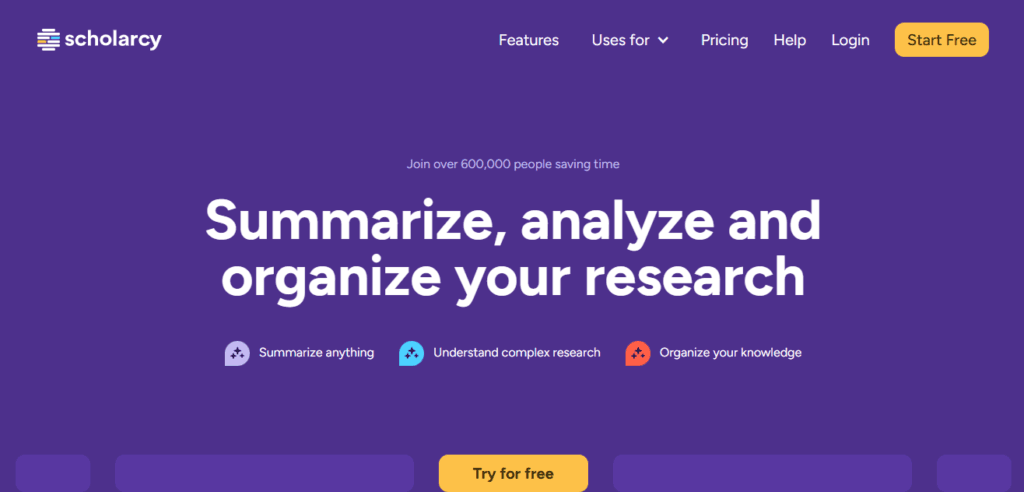
Key Features:
- One-click summaries of research articles
- Highlights key methods and findings
- Flashcard-like format for references
Pros:
- Speeds up literature review processes
- Excellent for managing large amounts of content
Cons:
- Sometimes misses subtle insights in technical papers
Pricing:
Free with premium plans from $8.99/month.
User Experience:
Loved by postgraduate students and professionals who need fast, digestible summaries.
6. Connected Papers – Discover Related Research Easily
Connected Papers allows users to create visual graphs of academic papers, showing how works are related over time.
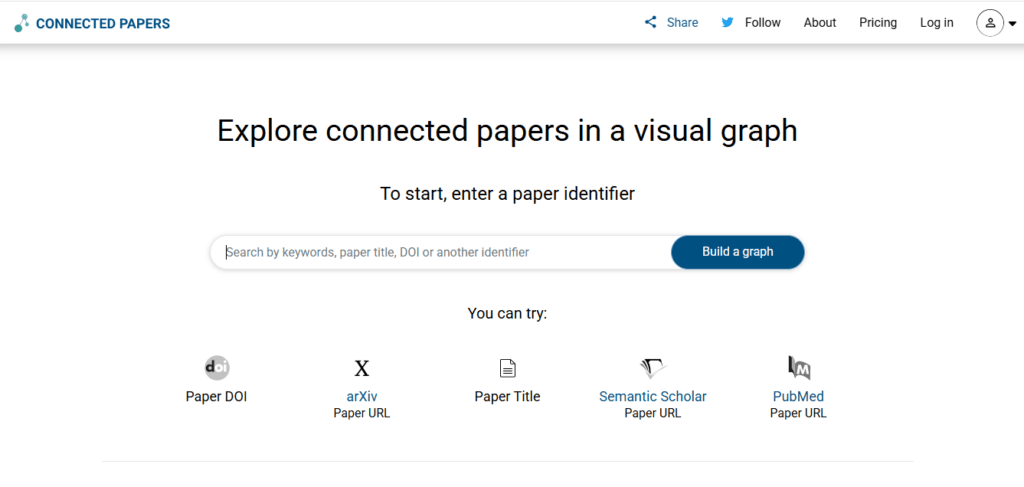
Key Features:
- Generates citation maps
- Finds foundational and recent papers
- Excellent for exploring unfamiliar fields
Pros:
- Easy to discover relevant literature
- Great for early-stage research and brainstorming
Cons:
- Focused more on visualization than full-text analysis
Pricing:
Free to use.
User Experience:
Highly rated by early-career researchers for mapping research topics visually.
7. Researcher App – Academic Journals Made Accessible
Researcher App delivers academic papers and research updates directly to your phone, based on your interests.

Key Features:
- Personalized research feeds
- Over 20,000 journals indexed
- Mobile-friendly experience
Pros:
- Saves time on journal browsing
- Great for staying updated on latest publications
Cons:
- No deep AI summarization or analysis tools
Pricing:
Free.
User Experience:
Ideal for staying on top of the latest research while on the go.
8. Iris.ai – Science-Based Research AI
Iris.ai helps automate literature reviews and provides detailed scientific paper analysis.
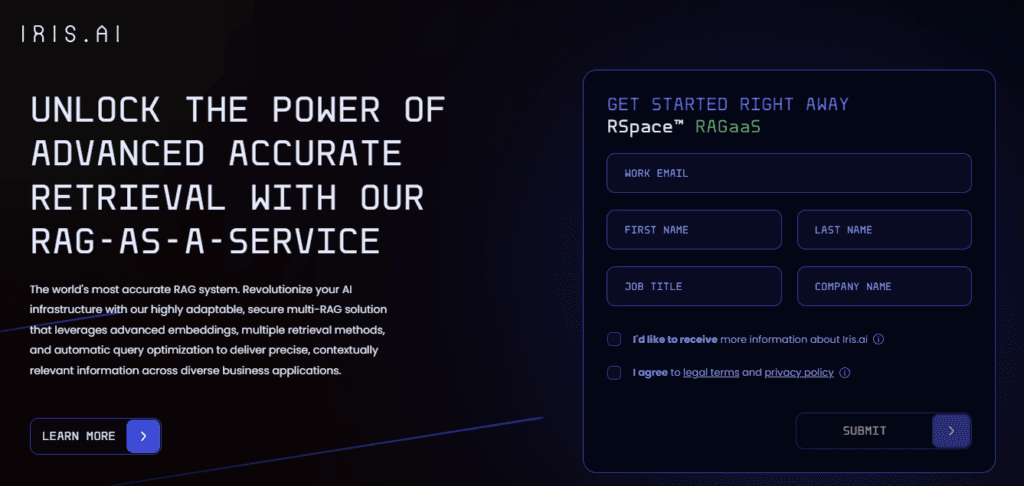
Key Features:
- Research question interpretation
- Contextual paper summaries
- Knowledge graphs to find relevant documents
Pros:
- Strong in scientific domains
- Helps refine and focus research topics
Cons:
- More suitable for advanced users and scientific fields
Pricing:
Free tier available; paid plans for enterprise and institutions.
User Experience:
Used by research institutions and universities for deep-topic exploration.
9. ChatGPT (with Research Plugins)
ChatGPT, when paired with plugins or integrated research datasets, can help with idea generation, summarizing papers, and writing.
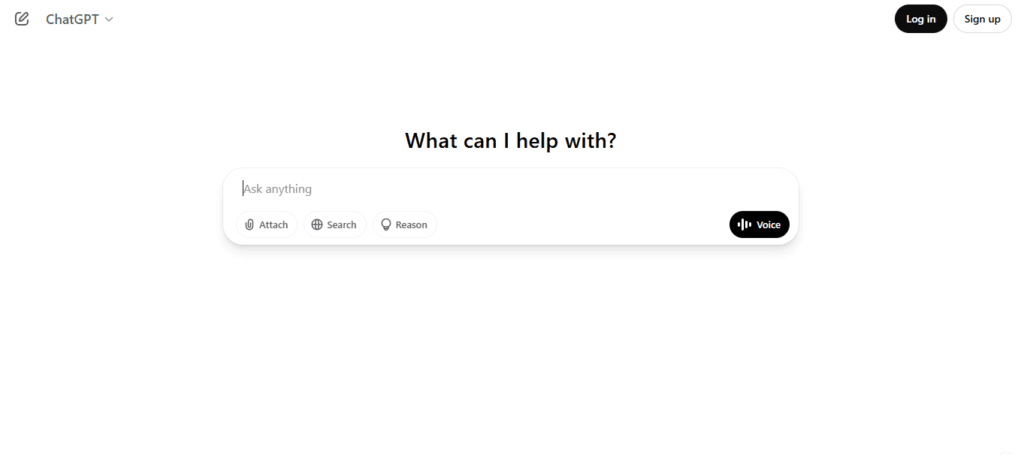
Key Features:
- Summarizes complex ideas into simpler terms
- Helps structure outlines and papers
- Can answer topic-specific questions
Pros:
- Versatile and conversational
- Excellent writing and brainstorming support
Cons:
- Requires fact-checking with original sources
- May not cite real or reliable papers without plugins
Pricing:
Free (basic); GPT-4 plan starts at $20/month.
User Experience:
Popular among students, bloggers, and researchers as a thinking partner and writing co-pilot.
Top Chatgpt Research Plugins
Here’s a list of ChatGPT research plugins that can significantly enhance your academic, technical, or market research workflows within ChatGPT (Pro version with plugins enabled):
ChatGPT Research Plugins Table
| Plugin Name | Purpose | Use Case | Pricing |
| ScholarAI | Access peer-reviewed papers via Semantic Scholar | Instantly search academic references and summaries | Free |
| Wolfram Alpha | Advanced math, stats, and science computation | Data analysis, solving equations, visualizing scientific models | Included in ChatGPT Plus (GPT-4) |
| Link Reader | Read and summarize URLs | Summarize blog posts, news, academic articles | Free |
| Data Interpreter | Analyze uploaded CSV files | Explore, visualize, and summarize raw research datasets | Included in ChatGPT Plus (GPT-4) |
| AskYourPDF | Chat with uploaded PDF files | Extract key insights from research papers or reports | Free tier available; Pro starts at ~$5/mo |
| Web Browser | Real-time web search | Search live sources, updated research, current events | Included in ChatGPT Plus (GPT-4) |
| ChatWithPDF | Conversational reading of PDFs | Ideal for academic papers, long-form documents | Free plan available; Premium from $9/mo |
| Klarna | Product and price comparison | Market and product research for business/commerce fields | Free |
| StatPearls | Access medical and clinical content | Health science, nursing, and medical research | Free |
| PubMed Plugin | Search biomedical research papers | Used for medical, biology, and life sciences academic work | Free |
| Diigo (via extensions) | Save, annotate, and highlight research content | Knowledge management for academic projects | Free plan; Premium from $40/year |
Note: Plugins are only available in ChatGPT Plus with GPT-4 and plugins enabled. Enable them via Settings > Beta Features > Plugins and then install from the Plugin Store.
10. Zotero – Reference & Citation Management Tool
Zotero isn’t an AI summarizer, but it works with AI tools and helps manage sources efficiently.
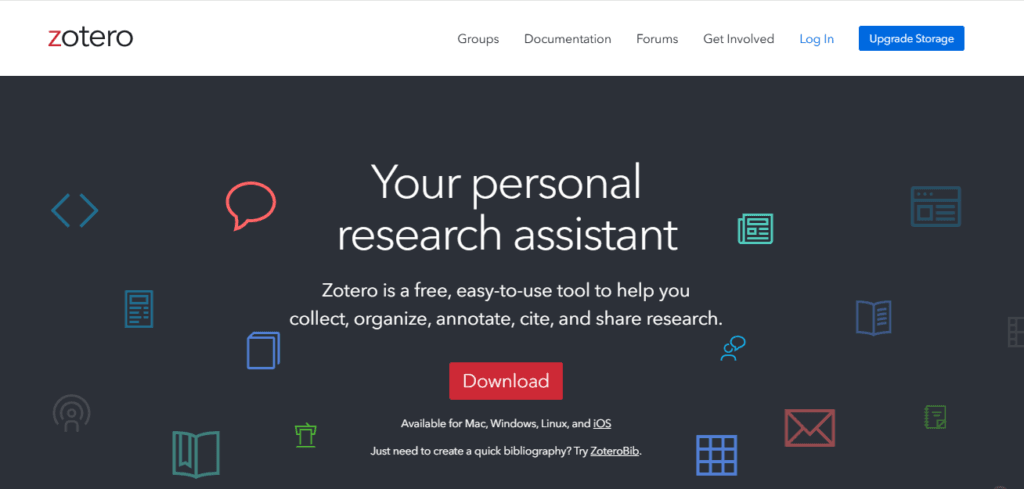
Key Features:
- Auto-generates citations and bibliographies
- Web plugin for quick saving of papers
- Syncs across devices
Pros:
- Organizes research effortlessly
- Supports multiple citation styles
Cons:
- Not an AI-powered summarizer
- Requires manual tagging for best results
Pricing:
Free with optional paid storage upgrades.
User Experience:
A staple in academic writing; often paired with AI summarizers like Scholarcy or Scite.
Comparison Table: Best AI Research Tools for 2025
| Tool Name | Best For | Key Features | Free Plan | Premium Pricing |
| Elicit | Systematic reviews & paper summaries | Literature search, data extraction, summaries | ✅ | From $10/month |
| Consensus | Question-based research search | Synthesized insights from 200M+ papers | ✅ | Premium tier available |
| Scite | Citation analysis | Smart citations, context tracking | ✅ | From $10/month |
| Scholarcy | Summarizing academic content | Flashcards, key ideas, summary extraction | ✅ | From $8.99/month |
| ResearchRabbit | Visual research exploration | Citation graphs, tracking research evolution | ✅ | Free |
| Connected Papers | Topic mapping & related works | Visual citation maps, backward/forward tracing | ✅ | Free |
| Researcher App | Staying updated on new papers | Personalized journal feed, alerts | ✅ | Free |
| Iris.ai | Deep science-focused research | Knowledge graphs, paper context analysis | ✅ | Institutional pricing |
| ChatGPT + Plugins | Writing & brainstorming | Outlining, summarization, Q&A capabilities | ✅ | GPT-4 at $20/month |
| Zotero | Reference & citation management | Auto-citation, tagging, integration | ✅ | Paid storage from $20/yr |
More AI Research Tools to Explore
11. Litmaps – Research Discovery Through Networks
Litmaps visualizes the research landscape and shows how studies are connected. Great for discovering what’s new and what came before.
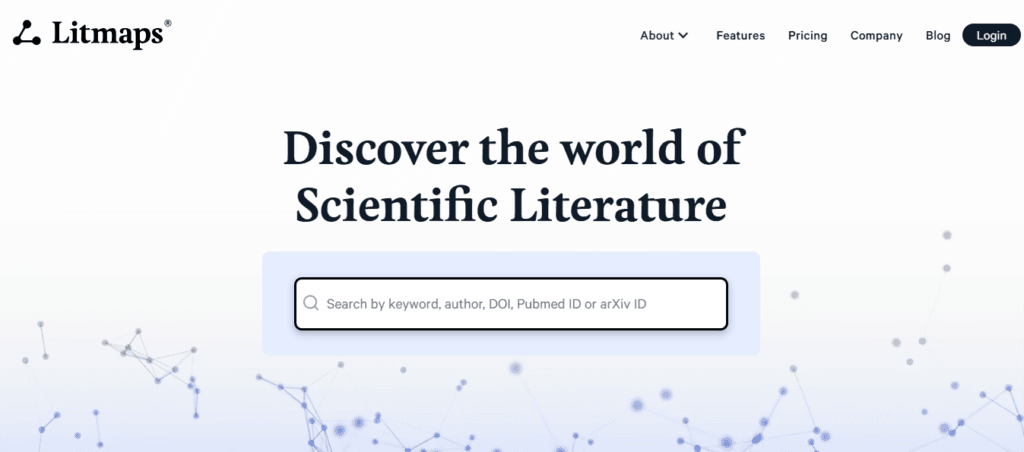
Key Features:
- Timeline-based citation graphs
- Alerts for new relevant research
- Explore emerging topics visually
Pros:
- Ideal for tracking trends in research
- Easy-to-navigate visual interface
Cons:
- Not a summarization tool
- Some features behind paywall
Pricing:
Free with limited features; Pro plans available.
User Experience:
Well-received by PhD students and research advisors for building reading lists.
12. Jenni AI – Writing Assistant for Researchers
Jenni AI helps researchers write faster by suggesting content, paraphrasing, and formatting academic text.

Key Features:
- In-line AI suggestions
- Auto citations in APA, MLA, Chicago
- Paraphrasing & tone adjustment
Pros:
- Excellent for academic writing support
- Reduces writer’s block
Cons:
- Doesn’t fetch academic sources on its own
Pricing:
Free trial; Paid version starts from $20/month.
User Experience:
Loved by students for improving paper structure and reducing writing time.
13. SciSpace (formerly Typeset.io) – Understand and Summarize Research
SciSpace provides a simplified breakdown of scientific papers using AI and lets users chat with research content.
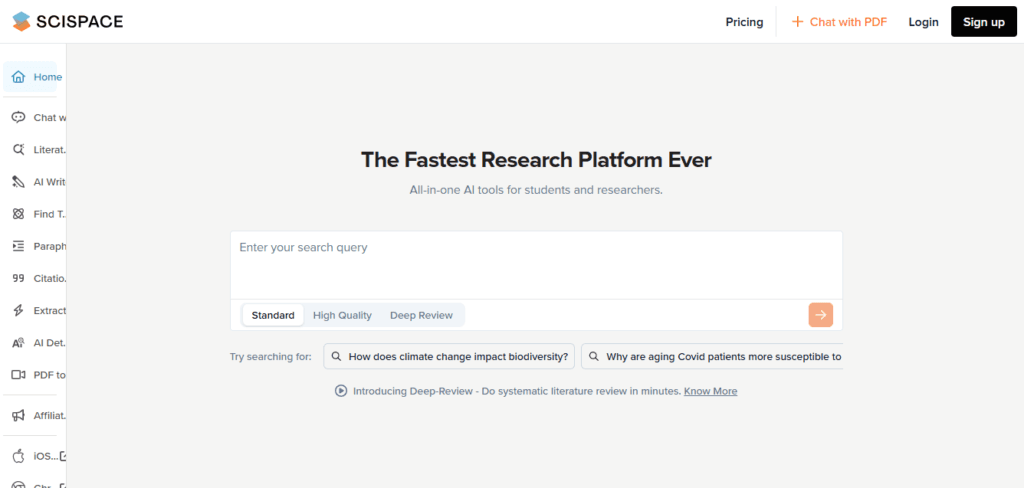
Key Features:
- AI-powered research explanations
- Ask questions and get contextual answers
- PDF highlighting and summarization
Pros:
- Makes complex research understandable
- Interactive chat with research content
Cons:
- Still improving accuracy in some technical fields
Pricing:
Free basic use; premium for advanced features.
User Experience:
A favorite for non-native English speakers and early-career researchers to understand dense material quickly.
Applications of AI Research Tools
AI-powered research tools are transforming how information is gathered, analyzed, and applied across multiple domains. From academia to corporate research, these tools are streamlining complex tasks and enhancing productivity.
Academic Institutions & Universities
AI research tools are increasingly adopted in higher education settings.
- Streamline Literature Review Processes: Automate the scanning and summarizing of vast amounts of academic papers, making it easier to find relevant studies quickly.
- Reduce Manual Reading Time for Thesis Development: Help students and researchers digest essential information faster, speeding up thesis writing and dissertation preparation.
Scientific Research & R&D Departments
In scientific environments and innovation hubs, speed and accuracy are vital.
- Quickly Validate Hypotheses with Synthesized Research: AI tools assist in comparing and verifying scientific claims by pulling insights from peer-reviewed publications.
- Improve Collaboration and Citation Accuracy: Researchers can manage references efficiently and collaborate with peers through shared AI-driven platforms that enhance version control and consistency.
Business & Market Research
AI research tools are a powerful asset in business intelligence and strategic planning.
- AI-Powered Tools Help Extract Trends and Insights from Vast Databases: Whether analyzing customer behavior, market trends, or competitor data, AI tools provide faster and more accurate insights.
- Generate Research-Backed Whitepapers or Market Intelligence: Professionals use these tools to produce data-driven reports, whitepapers, and presentations that support business decision-making.
How to Choose the Right AI Tool for Your Research
With so many AI research tools available, it can be overwhelming to select the best one for your specific needs. Whether you’re a student, academic, or business analyst, choosing the right tool depends on the type of research you conduct, your workflow, and your goals.
KeyConsiderations
Before committing to any AI research tool, it’s important to evaluate the following aspects:
- Nature of Research (Scientific, Academic, Commercial):
Tools vary in specialization—some are better for scientific papers, while others cater to general academic or business research. Choose one that aligns with your field. - Integration with Citation Managers (Zotero, Mendeley, etc.):
For academic efficiency, ensure the AI tool can integrate with citation managers to streamline referencing and bibliography creation. - Budget and Premium Feature Needs:
Many tools offer limited features for free. Determine whether the advanced functionalities in premium plans are worth the investment based on your usage. - Data Security and Access Control:
Ensure the tool complies with data protection standards, especially if you’re handling sensitive or proprietary research data.
Tips to Get Started
If you’re new to AI-powered research tools, here are some tips to help you start effectively:
- Begin with Free Tools like ResearchRabbit or Elicit:
These offer powerful features at no cost, making them ideal for beginners or light users testing the waters. - Align Tool Features with Specific Research Stages (e.g., Discovery, Summarization):
Identify where you need support—literature discovery, summarizing papers, citation help—and pick tools tailored to those tasks. - Evaluate Output Accuracy Before Relying on Summaries:
Always double-check the AI-generated content to ensure it captures the right context and doesn’t oversimplify complex material.
Expert Tips to Maximize AI in Research
Using AI in research isn’t just about choosing a tool — it’s about using it effectively. Here are expert-backed strategies to get the most out of AI research tools in 2025:
- Combine Multiple Tools for Full Research Workflows:
No single tool covers every stage of the research process. For example, use Elicit for literature discovery and Scholarcy for summarizing papers. This combination ensures you’re not only finding quality content but also consuming it efficiently. - Use AI Summaries for Quicker Peer Reviews:
AI-generated summaries can save hours during peer-review or collaboration phases. Use tools that highlight key arguments, findings, and methods to assess research at a glance before diving deeper. - Maintain Human Oversight for Critical Decision-Making:
While AI can speed up tasks, important interpretations and conclusions should still be handled by the researcher. Always double-check AI outputs for nuance, context, and potential bias—especially in complex or sensitive topics.
Queries Related to AI Research Tools
1. AI Research Tools Free
There are several free AI research tools available that help streamline tasks like literature reviews, summarization, and citation management. Some popular free tools include:
- Elicit (Free plan available)
- ResearchRabbit
- Scite (limited free version)
- Scholarcy (basic features free)
- Connected Papers
2. AI Research Tools PDF
AI tools that can analyze and summarize PDF research papers:
- Scholarcy: Upload PDFs for auto summarization.
- Elicit: Accepts uploaded papers and provides research insights.
- Semantic Scholar: Search and access scholarly PDFs, including citations.
- SciSpace Copilot: AI assistant for understanding and breaking down complex PDFs.
3. Best AI Research Tools
Top-rated AI research tools in 2025 include:
- Elicit – AI assistant for literature review and Q&A.
- Consensus – Provides research-backed answers.
- Scholarcy – Summarizes academic papers.
- Scite – Offers smart citations and context.
- ResearchRabbit – Helps visualize research relationships.
4. AI Research Tools List
Here’s a brief list of essential AI research tools:
- Elicit
- Consensus
- Scite
- ResearchRabbit
- Scholarcy
- Semantic Scholar
- Connected Papers
- SciSpace
- Litmaps
- Jenni AI (for writing assistance)
5. Free AI Tools for Research Paper Writing
If you’re looking to write research papers with AI, try these:
- Jenni AI (free credits available)
- Grammarly (basic grammar and style checking for free)
- QuillBot (free paraphrasing mode)
- SciSpace (PDF explainer for scientific papers)
- Google Bard or ChatGPT (Free versions) for brainstorming and drafts
6. Research Rabbit
ResearchRabbit is a free AI-powered tool designed for academic research. It allows users to:
- Discover new papers and authors
- Visualize how research topics are interconnected
- Track new publications
- Collaborate with research groups
It’s especially useful for literature reviews and exploring niche topics.
7. AI Research Tools for Literature Review
Best tools to assist with literature reviews:
- Elicit – Automatically finds and organizes papers by relevance
- ResearchRabbit – Maps out related literature visually
- Connected Papers – Creates a visual graph of related research
- Scholarcy – Quickly summarizes papers and extracts key points
- Consensus – Answers research questions using peer-reviewed data
8. Best Free AI for Research
If you’re starting out and looking for the best free AI tools for academic or professional research, use:
- Elicit (Best for finding and organizing literature)
- ResearchRabbit (Free and powerful for mapping research)
- Scholarcy (Basic summaries for free)
- SciSpace (PDF explainer and academic assistant)
- Semantic Scholar (Search engine for academic papers)
FAQ’s On AI Research Tools
What is the best AI tool for academic research?
Elicit and Scholarcy are top choices for academic research due to their ability to summarize and analyze research papers accurately.
Are AI research tools reliable?
Yes, especially when used to assist—not replace—traditional research practices. Tools like Scite help validate citations and context.
Can AI help with writing research papers?
Yes. AI can summarize, generate outlines, and help with citations, but the final interpretation should be done by the researcher.
Are these tools free to use?
Most tools offer free plans with limited access; premium features vary in cost.
Which AI tool is best for research?
Elicit is currently one of the best AI tools for research. It helps with literature reviews, research question exploration, and summarization of academic papers. Others like Consensus, ResearchRabbit, and Scite also stand out depending on the research stage.
How can AI be used as a tool for research?
AI can assist researchers by:
- Searching academic databases
- Summarizing papers
- Organizing literature
- Generating ideas or outlines
- Helping with citation management
- Rewriting and paraphrasing for clarity
What AI is better than ChatGPT?
It depends on the task:
- For writing assistance, tools like Claude AI (by Anthropic) and Gemini (Google) are strong alternatives.
- For research-specific tasks, Elicit or Consensus might be more focused than ChatGPT.
What is the best AI writing tool for research?
Jenni AI, Writesonic, and ChatGPT Plus are top writing tools. They can generate, refine, and summarize content effectively. For academic writing, SciSpace and Scholarcy add research context.
Which GPT is the best for research?
GPT-4 (available in ChatGPT Plus) is the most advanced version currently available and is excellent for research tasks like summarizing papers, generating ideas, and writing structured content.
Can I use AI to write my research paper?
Yes, AI can help you write, structure, summarize, paraphrase, and edit your research paper. However, you should not rely solely on AI—review the content carefully and cite original sources.
Can professors detect AI written papers?
Yes, many professors use AI detectors or check for tone, logic, and originality inconsistencies to spot AI-generated content.
Is there a free AI that can write research papers?
Yes. Tools like:
- ChatGPT (Free version)
- Jenni AI (free trial)
- SciSpace can help, though free versions often have usage limits.
Can AI essay writers be detected?
Yes. AI writing can be detected using tools like Turnitin, ZeroGPT, or GPTZero, though none are 100% foolproof.
Can Turnitin actually detect AI?
Yes, Turnitin has integrated AI detection features, though it may flag false positives or miss subtle AI use.
How do I check if my paper was written by AI?
Use AI detectors like:
- Turnitin
- ZeroGPT
- GPTZero
- Writer.com AI Content Detector
What AI can write an essay without plagiarizing?
ChatGPT (GPT-4) and Writesonic can generate original content. Still, you should check for plagiarism using tools like Grammarly or Quetext.
Is it cheating to use AI to write a paper?
It depends on your institution’s policy. Using AI to assist with writing (e.g., editing, summarizing) is often allowed. Using it to write entire assignments without disclosure may be considered cheating.
Can colleges detect AI written essays?
Yes, many colleges now use detection tools or manual reviews to evaluate AI-generated work.
Is it bad to use AI for essays?
Not necessarily. If used responsibly—for grammar checks, organization, or idea generation—AI is helpful. However, overreliance can weaken your critical thinking and originality.
What are AI words to avoid?
Words or phrases often flagged in AI writing:
- “In conclusion”
- “It is important to note”
- “In today’s society”
- Repetitive phrases or overly generic statements
To reduce detection, write with natural tone and structure.
Can I ask ChatGPT to check my essay?
Yes! ChatGPT can:
- Provide feedback
- Suggest edits
- Improve structure
- Fix grammar and flow
Does Grammarly use AI?
Yes. Grammarly uses AI for:
- Grammar correction
- Style enhancement
- Tone detection
- Rewriting suggestions
Which AI tool is best for thesis writing?
- Elicit (literature reviews)
- Jenni AI (writing assistance)
- Grammarly (editing)
- Zotero or Mendeley (citations) A combination works best for thesis writing.
What is the best AI content writing tool?
Top content writing AIs include:
- Jasper AI
- Writesonic
- Copy.ai
- ChatGPT Plus (GPT-4)
What is the best AI tool for report writing?
- ChatGPT
- Grammarly
- QuillBot
- Notion AI (for team-based reports)
What is the best AI tool to rewrite text?
- QuillBot
- Wordtune
- Grammarly Rewriter They help paraphrase, simplify, and enhance text clarity.
What is the new AI app everyone is using to write essays?
Jenni AI and Writesonic are gaining popularity in 2025. Notion AI and ChatGPT remain widely used too.
Is there an AI that can analyze text?
Yes. Tools like:
- ChatGPT
- SciSpace
- QuillBot (co-writer)
- Claude AI can analyze tone, logic, readability, and structure.
Can Grammarly rewrite AI text?
Yes, Grammarly can rephrase AI-generated content, improve readability, and reduce detection chances by making it sound more natural and human-written.
Conclusion: Your Research, Supercharged by AI
AI research tools are no longer futuristic add-ons—they’re now essential aids in modern research. Whether you’re a student, academic, or professional, these tools can drastically reduce the time spent on repetitive tasks and enhance the quality of your findings.
Ready to transform your research process?
Explore these tools, experiment with their features, and choose the ones that align with your research goals.
Sign up for free trials, compare features, and elevate your academic workflow today!